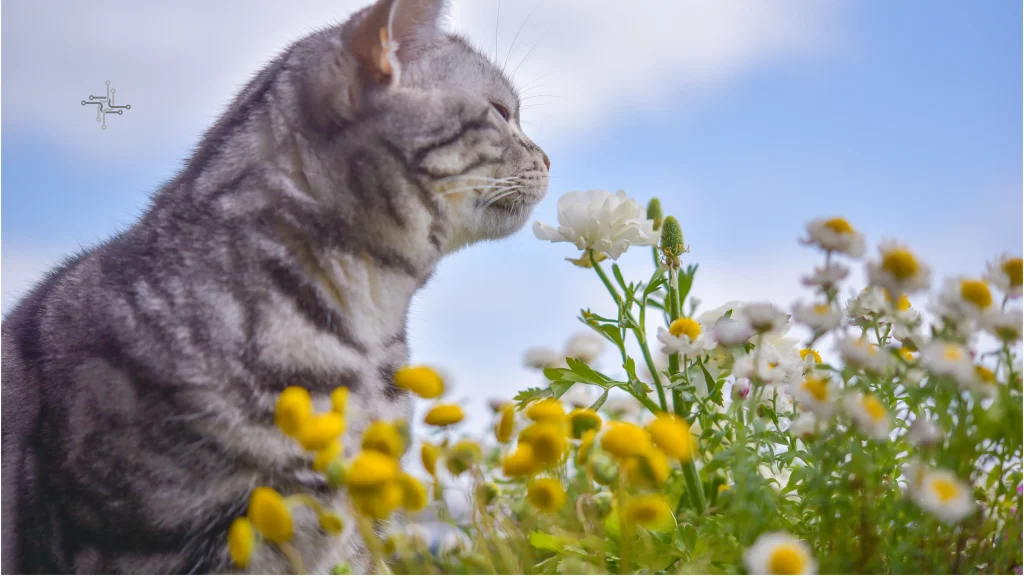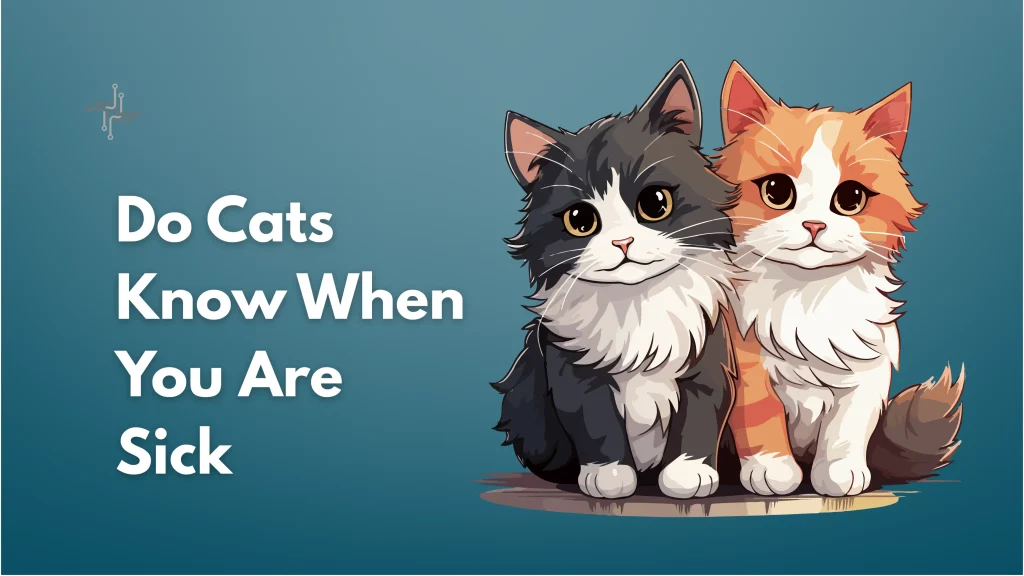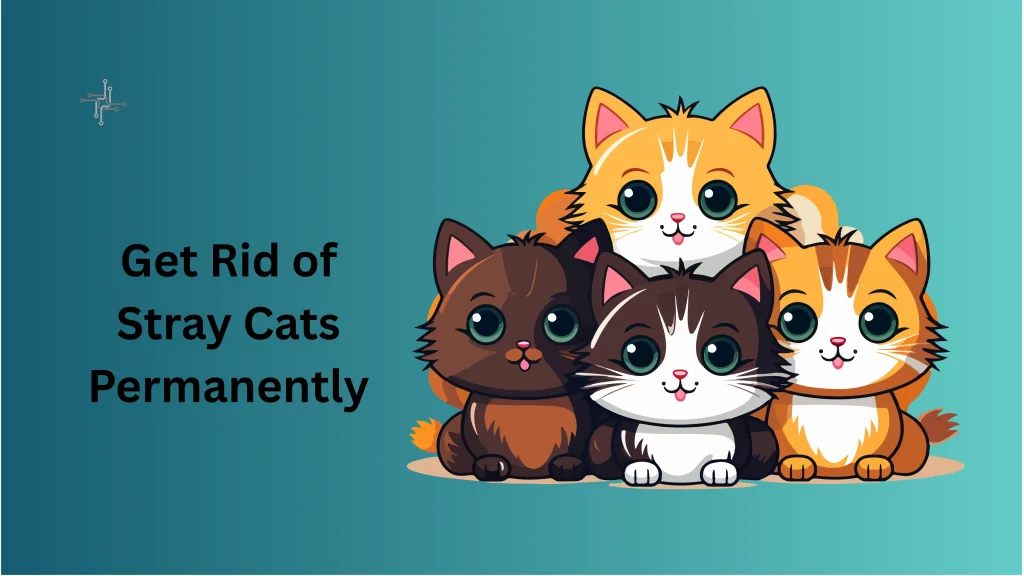Cats have a natural scent that many find pleasant. This smell is mostly caused by the oils in their skin and fur. Cats groom themselves regularly, which helps them spread these oils. These oils give them a soft, clean scent. Cats also release pheromones, which are chemical signals used for communication. These pheromones can add to their pleasant smell, making them feel comforting and familiar.
Cats’ diet and overall health also play a role in how they smell. A healthy cat tends to have a more pleasant scent compared to one that is unwell. Good hygiene, regular vet check-ups, and proper grooming can keep a cat smelling fresh. Every cat’s scent is unique, but most of the time, their natural smell is a sign of their cleanliness and well-being.
Table of Contents
Cat’s Natural Scent
A cat’s natural scent is mainly due to the oils produced by its skin and fur. These oils are spread during grooming, which cats do regularly. The oils create a soft and clean scent that many people find pleasant. Cats also release pheromones, which are chemical signals used to communicate with other cats and mark their territory. These pheromones add to their overall scent, making them smell familiar and comforting to their owners.
The smell of a cat can be influenced by several factors, including diet, breed, and general health. Healthy cats usually have a mild and fresh scent. However, if a cat is unwell or has poor hygiene, its scent might become unpleasant. The food a cat eats can also affect how it smells, as certain diets can alter the oils in their fur or affect their breath.
Regular grooming and vet check-ups help maintain a cat’s pleasant natural scent. Brushing your cat’s fur and ensuring they are clean will keep their oils balanced and their scent fresh. Cats’ natural scent is unique to each one and is a reflection of their overall health and cleanliness. Keeping your cat healthy and well-groomed is the best way to enjoy their fresh, comforting smell.
Factors That Contribute to a Cat’s Pleasant Smell
Grooming Habits and Natural Oils
Cats groom themselves regularly, licking their fur to clean it and spread natural oils produced by their skin. These oils help keep their fur soft and give off a clean, pleasant scent. Regular grooming also removes dirt and debris, ensuring their coat stays fresh.
Pheromones and Communication
Cats release natural pheromones, which are chemical signals used for communication. These pheromones have a comforting and familiar smell, contributing to the overall pleasant scent that people associate with cats.
Diet and Health
A cat’s diet and overall health influence its natural smell. A balanced diet helps maintain healthy skin and fur, supporting a clean and fresh scent. Good health is key to keeping a cat’s scent pleasant.
Breed and Hygiene
Some cat breeds naturally have a softer, fresher scent due to their coat types and grooming habits. Regular vet check-ups and proper hygiene ensure that a cat’s scent stays pleasant by addressing health issues or poor hygiene that could affect it.
Health and Cleanliness
Regular Vet Check-ups
Regular vet check-ups are essential for maintaining a cat’s health and cleanliness. Routine visits help catch any potential health issues early, such as skin infections or dental problems, that could lead to unpleasant odors. A healthy cat is more likely to maintain a pleasant, fresh scent.
Skin and Coat Health
A cat’s skin and coat play a major role in its overall scent. Healthy skin produces the right amount of oils to keep the fur soft and clean. If a cat has dry or irritated skin, it can lead to a less pleasant odor. Regular grooming helps keep the coat clean, removing dirt and preventing matting, which can cause bad smells.
Maintaining Good Hygiene
Proper hygiene is key to keeping a cat smelling fresh. Regular brushing helps remove loose fur and debris, while also preventing hairballs. Keeping a clean litter box is equally important, as an unclean box can cause odors to cling to a cat’s fur.
The Role of Breeds in a Cat’s Scent
Different cat breeds can have unique scents, mainly due to their fur types and grooming habits. Cats with longer or thicker coats, like Persians and Maine Coons, tend to have a stronger natural scent. This is because their fur retains more oils, which are spread during grooming. On the other hand, short-haired breeds such as Siamese or Bengals have less oil in their fur, resulting in a lighter, more subtle scent.
The amount of oil a cat’s fur retains also depends on its coat type. Breeds with thick or long fur, like the Persian, require more grooming to spread the oils evenly across their coat. If the oils are not evenly distributed, the scent may be affected. In comparison, short-haired breeds need less maintenance, and their scent tends to be more neutral.
Certain breeds are known for their naturally pleasant scent. For instance, the Russian Blue and British Shorthair are known for their fresh and clean smell. This is due to their smooth coats and consistent grooming habits. However, regardless of breed, all cats benefit from regular grooming and health care to maintain a pleasant scent.
How a Cat’s Environment Affects Its Smell
A cat’s environment plays a significant role in its scent. The cleanliness of the space where a cat lives can directly impact how it smells. A dirty litter box, for example, can cause odors to cling to a cat’s fur, making it smell unpleasant. Keeping the litter box clean is crucial for maintaining a fresh scent. Similarly, if the cat’s living area is cluttered or not properly cleaned, the accumulation of dust, dirt, or pet hair can also affect the overall smell.
The type of bedding and where a cat spends its time can also influence its scent. Cats that sleep on clean, soft surfaces or in areas with fresh air are more likely to maintain a pleasant smell. On the other hand, if a cat spends time in areas with strong odors or pollutants, such as damp basements or smoky rooms, these environmental factors can transfer onto its fur and affect its natural scent.
The overall air quality in the home can affect how a cat smells, too. Homes with poor ventilation or lots of allergens may cause a cat’s fur to retain unwanted smells. Good ventilation and a clean environment are key for ensuring a cat’s natural scent remains fresh.
When a Cat’s Smell Might Be Off
A cat’s natural scent might become unpleasant if it is experiencing health problems. For example, dental issues like gum disease or tooth decay can lead to bad breath, which affects the cat’s overall smell. If your cat has an ear infection or skin issues, such as fungal infections or allergies, it can also cause unusual or foul odors. In these cases, a visit to the vet is necessary to address the underlying health issue and restore the cat’s natural scent.
Poor hygiene can also cause a cat to smell bad. While cats groom themselves regularly, they may not be able to clean certain areas, such as their back or under their tail, effectively. This can lead to the buildup of dirt or oils, causing a musty or sour smell. Additionally, cats that don’t groom themselves as often due to illness or old age might develop unpleasant odors. Regular grooming and cleaning can help prevent these smells.
If a cat’s litter box is not cleaned regularly, the smell of waste can cling to its fur and affect its scent. A dirty litter box can also cause your cat to track litter dust or waste around the house, making its overall smell less pleasant. Keeping both your cat and its environment clean is essential for maintaining a fresh, natural scent.
Conclusion
Cats naturally smell good because of their clean grooming habits and the special oils in their fur. Their bodies release natural scents and pheromones that are soft and comforting. A healthy cat with a clean environment usually keeps a pleasant, fresh smell.
Things like good diet, regular vet visits, and a tidy living space also help a lot. Some breeds may smell fresher than others, but regular grooming is important for all cats. If a cat ever smells bad, it’s often a sign something’s wrong. A clean, healthy, and happy cat will always smell soft, light, and comforting.


